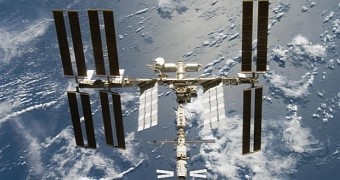A Russian cargo ship that was supposed to reach the International Space Station about a week and a half ago but that was instead lost in orbit came crashing down to Earth just a few hours ago.
While traversing the planet's atmosphere, the Progress M-27M / 59P mission cargo spacecraft ignited, turning into one big fireball. The flames destroyed most of the cargo ship, but some bits and pieces survived.
The good news is that, rather than fall to the ground close to the city of London in the UK, as predicted by Russian Federal Space Agency mission scientists, these fragments landed in the Pacific Ocean.
“The Progress M-27M spacecraft ceased to exist at 05:04 Moscow time (02:04 GMT) on 8 May 2015. It entered the atmosphere over the central part of the Pacific Ocean,” the Russian space agency writes in a statement.
“The Russian Federal Space Agency (Roscosmos) reports the Progress 59 cargo craft reentered the Earth’s atmosphere at 10:04 p.m. EDT over the central Pacific Ocean,” NASA reinforces.
How the cargo ship was lost in space
As mentioned, this Russian cargo ship that went haywire and eventually fell back to Earth launched on April 28. It was delivered into the planet's orbit by a Soyuz rocket that took off from the Baikonur Cosmodrome in Kazakhstan at 1:09 p.m. local time.
The cargo ship was carrying about 3 tons of supply meant for astronauts aboard the International Space Station, but never made it to its destination. It started spinning out of control and was lost shortly after having broken free from the Soyuz rocket.
NASA officials reassure that, although the Russian cargo ship failed to complete its mission and did not make it to the International Space Station, astronauts are adequately supplied and are not in a position to have to strive to make ends meet or anything of the sorts.
Another resupply mission is scheduled for this coming June. This time, the supplies, totaling about 1.5 tons of food, water, fuel and scientific equipment, will be delivered by California-headquartered aerospace company SpaceX.

 14 DAY TRIAL //
14 DAY TRIAL //